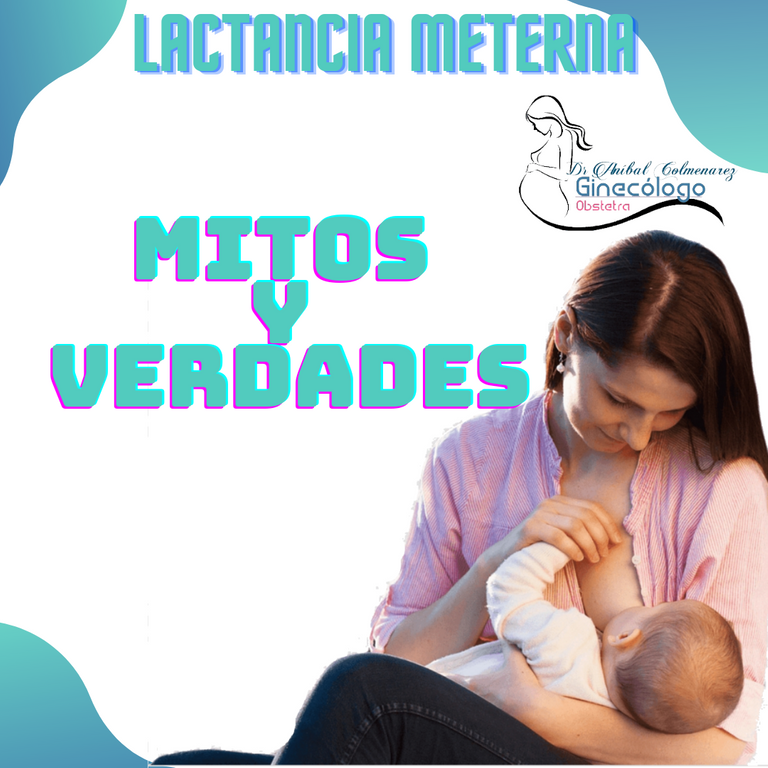
Hola mis queridas mamás
Esta semana es la semana de la lactancia materna, desde el 1 de agosto hasta el 7 de agosto, en más de 170 países.
En esta semana se tratan de hacer campañas informativas, sobre la nutrición adecuada de los lactantes.
Las madres y el problema de A quíen escuchar?

Bueno tanto para mis futuras mamás cómo las mamás que ya dan pecho, la respuesta es simple ** A tu Doctor **
Tratar de escucha amablemente los consejos de otros, agradecemos pero aplica las recomendaciones de los especialistas en salud, recuerda que si bien, los consejos no son mal intencionados, son su experiencia o la experiencia de otros, y cada persona es individual, los doctores estamos entrenados y estudiamos para dar repuesta efectiva, basada en evidencias.
Bueno ya hicimos una buena introducción, ahora sí,les voy a hablar sobre las interrogantes más frecuentes que me han tocado en la consulta, y es posible que pueda ayudar a despejar algunas dudas con referente a este tema.
Según mi experiencia y lo que he visto
1. Cuando amamanto debo darle agua a mi bebé?
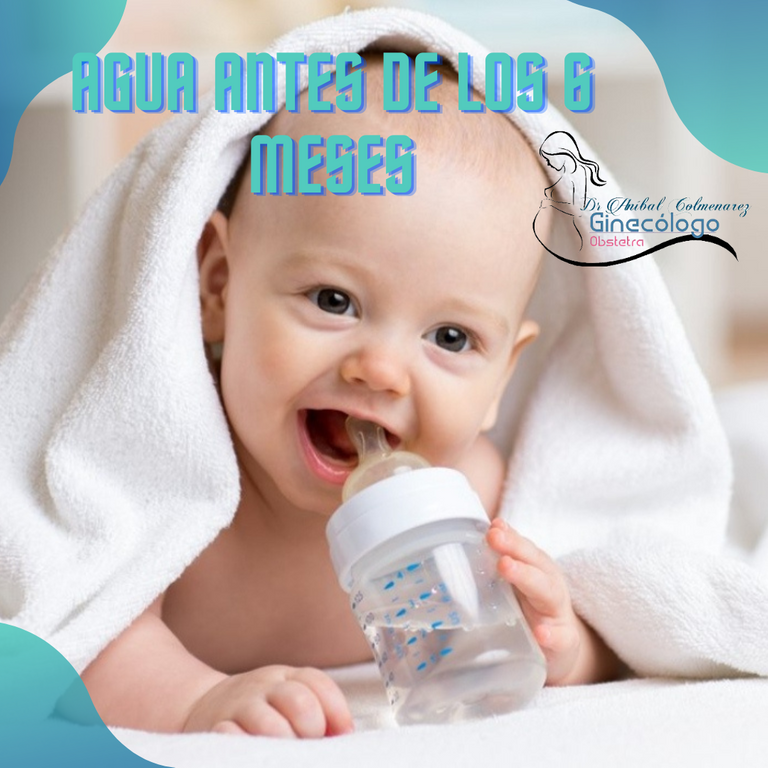
Es frecuente está pregunta, y entiendo la duda, la respuesta es NO la leche materna tiene todo lo que necesita tu bebé no necesita otra cosa.
La lactancia materna exclusiva es durante los primeros 6 meses y no incluye nada más que pecho
2. Mi bebé llora eso es por hambre.!

La verdad es que no solo llora el bebé por hambre, el lenguaje del bebé es el llanto es la manera de comunicarse, si tiene calor llorará, si tiene frío llorará, si se asusta llorará.
El lenguaje del bebé es el llanto no solo llora por hambre
Es un error pensar que solo el hambre hace que el bebé use su lenguaje que es el llanto, y esto nos desespera creyendo que el pecho no es suficiente para saciar su hambre, ten mucho cuidado con esto, debemos ver qué otra razones existe que el bebé nos quiere expresar através de su llanto
3. El bebé come cada 2 horas es porque no lo sustenta el pecho?

Eso es lo normal, la lactancia es a libre demanda, pero se estima que sea cada 2 a 3 horas el bebé debería comer, y esto se debe a la leche materna tiene todos los nutrientes esenciales, además son más fáciles de digerir por lo tanto el bebé como lo digiere más rápido y más fácil a las 2 horas vuelve a pedir comida.
La única manera de saber si un bebé niño sustenta la lecha materna, es que pierda peso apesar de estar amantando de manera exclusiva
4 debo hacer una dieta cuando doy pecho?
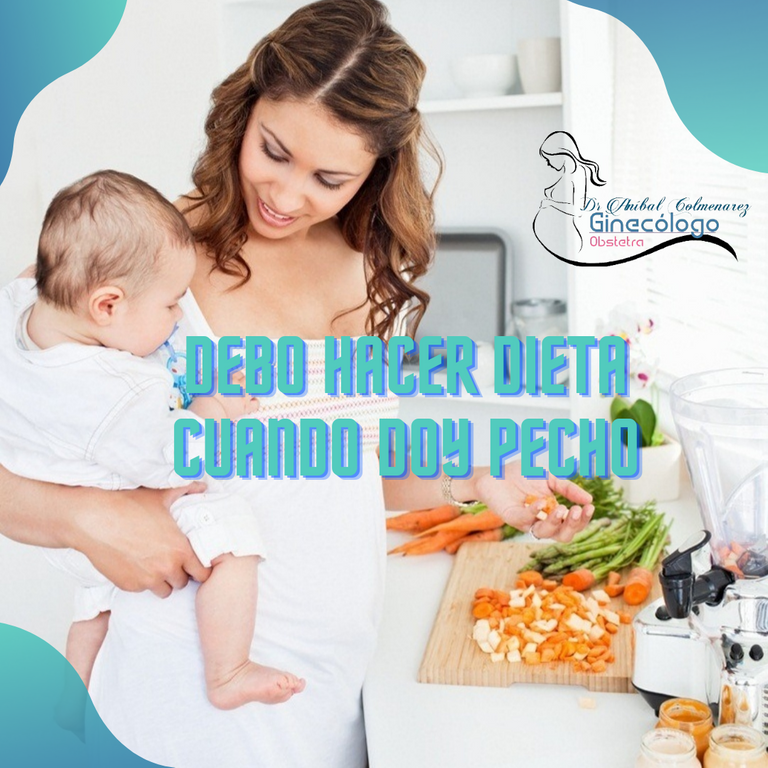
Este es una de los clásicos, que se cree que ciertos alimentos pueden caerle mal al bebé, darle hipo, vómito entre otras cosas, la verdad es que no tiene que ver qué comas con la lactancia, la formacion de la lecha materna es un proceso totalmente independiente de la digestión,lo único que puede tener cierta precausion son los medicamentos ya que algunos se pueden excretar por la leche materna,al igual que las bebidas alcohólicas,son casos muy excepcionales.
Pero no debes hacer dieta de alimento.
5. Por que no puedo darle fórmula a mi bebé?
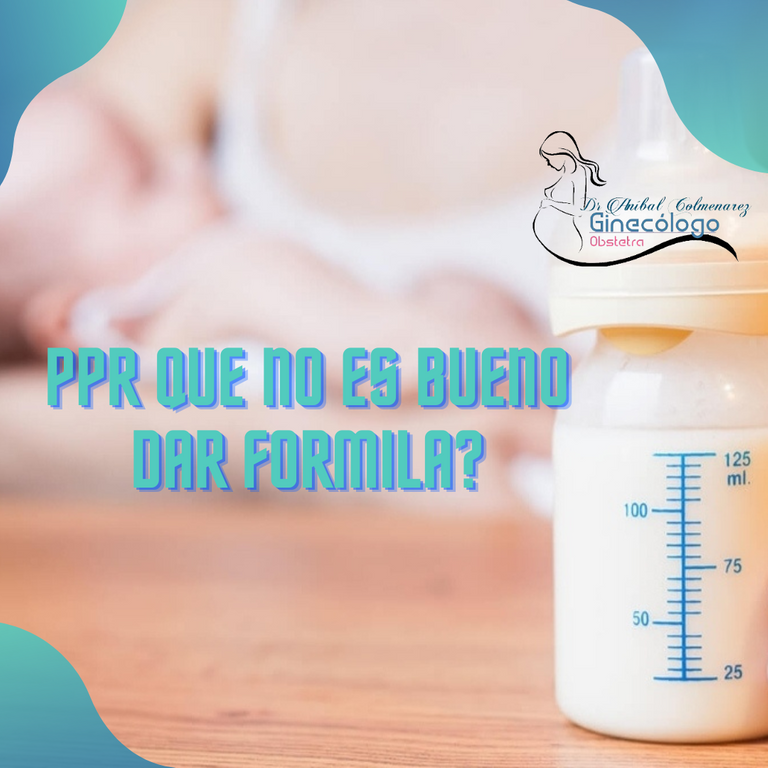
Bueno esto me lo preguntan muchísimo esto🧐 la verdad es que ninguna formula artificial puede igual a la lactancia materna, la leche materna.
Pero responderé desde 3 puntos importantes.
- El bebé:
La leche materna tiene todas las vitaminas, minerales, proteínas, células de defensa, entre otros componerse super importante para el desarrollo de bebé.
Además de todo esto,se debe entender que el sistema digestivo del bebé no está desarrollado para digerir ciertos elementos,la leche materna esta especialmente diseñada para que si digestión sea más fácil para el bebé, y también para no forzar a los otros órganos digestivos que aún no se han desarrollado del todo.
Su sistema de defensa de ve beneficiado, sus sistema digestivo, su desarrollo esencial y su sistema nervioso.
Simplemente es lo mejor para el bebé
2.La mama
Para TI mamá ofrecer beneficios también, estadísticamente las mujeres que amantan tiene menos riesgo de sufrir de cáncer de mamas.
Ayudas a la contracción uterina, así que los sangrados disminuirán
Ayuda a bajar de peso, si, así como lo lees, eso kilos de más que pudiste tener en el embarazo por un mecanismo importa durante la lactancia quemas más grandes y por ende bajas de peso
Es más cómodo:
Es mejor dar la teta que ya está lista,a la temperatura adecuada, no necesita refrigeración, mezclar, medidas nada, no necsita preparaciones complicadas de las fórmulas para dar un tetero
Ayuda al apego materno: tu bebé disfruta amamantar, no solo por un beneficio orgánico si no más por un beneficio afectivo, se siente seguro contigo, reconoce tu olor, tu calor es un gran vinculo que se hace más fuerte cuando das pecho
3.Económico
Son super costosas las fórmulas, además que no duran nada
Así que no solo es lo mejor para mamá y bebé si no que ahorras dinero
6. Le doy fórmula a mi bebé y no pide, más comida en mucho tiempo, es bueno?

Es verdad, que si das fórmula al bebé los intervalos entre comidas del bebé son más largos, pero eso no quiere decir que sea bueno, se debe a que la digestión es más lenta, ya que le cuesta más digerir la fórmula, y tarda más, esa es la razón por la cual tarda más en darle hambre.
Sin embrago eso, es perjudicial para el sistema digestivo.
7. Mis pechos no producen suficiente leche?

La verdad es que cualquier pecho produce la cantidad necesaria de leche,tenemos una mal pensamiento de creer que los pechos deben secretar muchas leche, la cantidad de leche materna es escasa, debemos recordar que el bebé nace sin jamás usar el estómago, lo cual la cantidad de leche materna debe en escasa cantidad, así que poco a poco se va acostumbrado el estómago del bebé al nuevo alimento, y adaptándose a la funcionar
Es vital que está adaptabilidad sea con leche materna
8. Como se si pecho no sustenta al bebé?
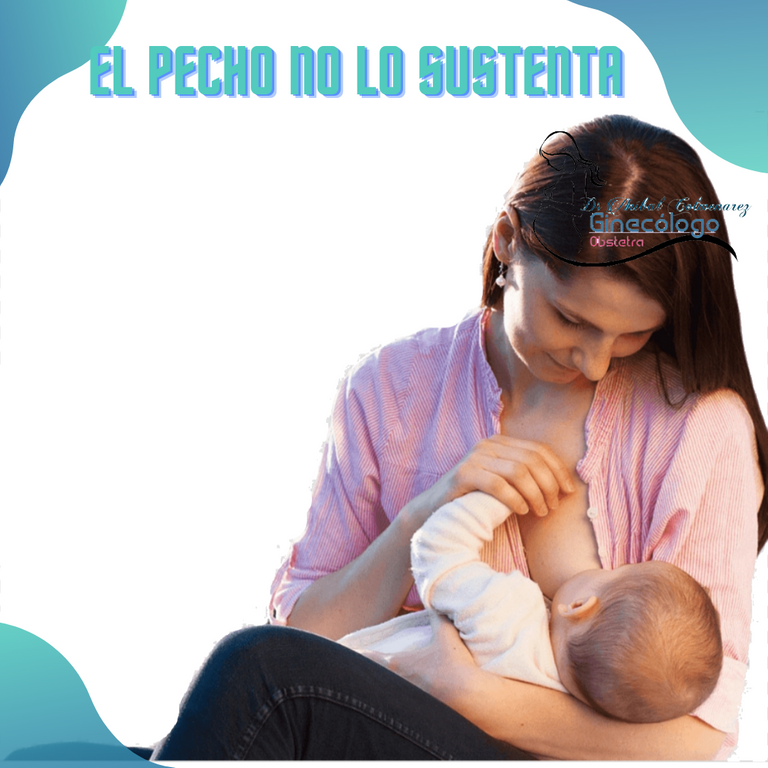
Todos los pechos sustentan a los bebés, y esto no depende no del tamaño, la única manera de saber si un bebé no lo sustenta la leche materna es que pierda peso aún recibiendo lactancia materna exclusiva.
Sin embargo esto está más asociado a problemas digestivos del bebé que a la composición de ella leche materna.
9. Debo tomar algo para producir más leche?

La verdad es que No, si bien es necesario estar bien hidratada, no es necesario para producen una cantidad de leche adecuada, la manera como el cuerpo produce más leche es por medio de la succión del bebé, es tan importante este proceso que el bebé decide cuánta cantidad de leche quiere tomar.
A mayor succión mayor cantidad de leche.
Esta es la razón por la cual al principio bla cantidad de leche es poca ya que le bebé se está adaptando a usar su estómago por primera vez, su cuerpo pedirá mayores nutrientes a medida que vaya pasando el tiempo y sus sistema digestivo empecé a funcionar mejor
10. Hasta cuándo debo dar pecho?

La lactancia materna exclusiva, lo cual no necesita ni agua el bebé solo teticas, es hasta los 6 meses, después de allí inicia un proceso llamado ablactación que es el proceso mediante el cual se van agregando alimentos necesarios para el desarrollo en un orden ya establecido, en este proceso la lactancia puede ser complementaria hasta los dos años.
El destete es un tema también muy importante, existen técnicas y estrategias para que el bebé de manera natural deje el pecho.
Siempre ante cualquier duda, acude a tu médico y aclara dudas.
Buenos mamás espero que estás Experiencias les sirvan a ustedes
Si tienen alguna preguntas estamos por aquí
👇🏻👇🏻👇🏻👇🏻
Escribe y con gusto responderé
Gracias por llegar aquí
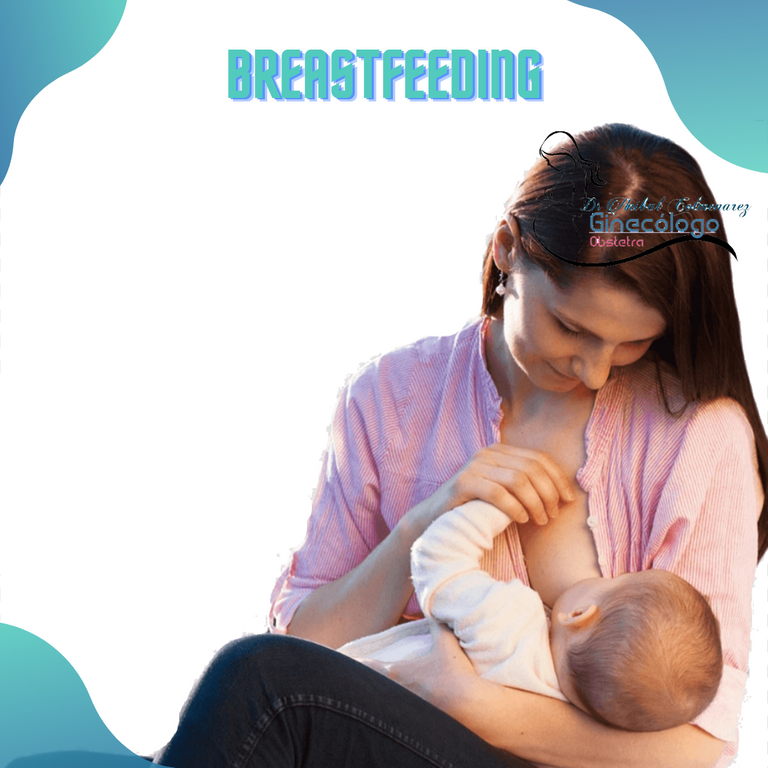
Hello my dear moms
This week is breastfeeding week, from August 1 to August 7, in more than 170 countries.
In this week they try to make informative campaigns, about proper nutrition for infants.
Mothers and the problem of Who to listen to?

Well for both my future moms and moms who already breastfeed, the answer is simple ** Your Doctor ** Try to listen kindly to his or her advice.
Try to listen kindly to the advice of others, we appreciate but apply the recommendations of health specialists, remember that while the advice is not malicious, are their experience or the experience of others, and each person is individual, doctors are trained and studied to give effective, evidence-based response.
Well, we have already made a good introduction, now I am going to talk about the most frequent questions that I have had in my practice, and it is possible that I can help to clear up some doubts regarding this subject.
According to my experience and what I have seen
1. When I breastfeed, should I give my baby water?
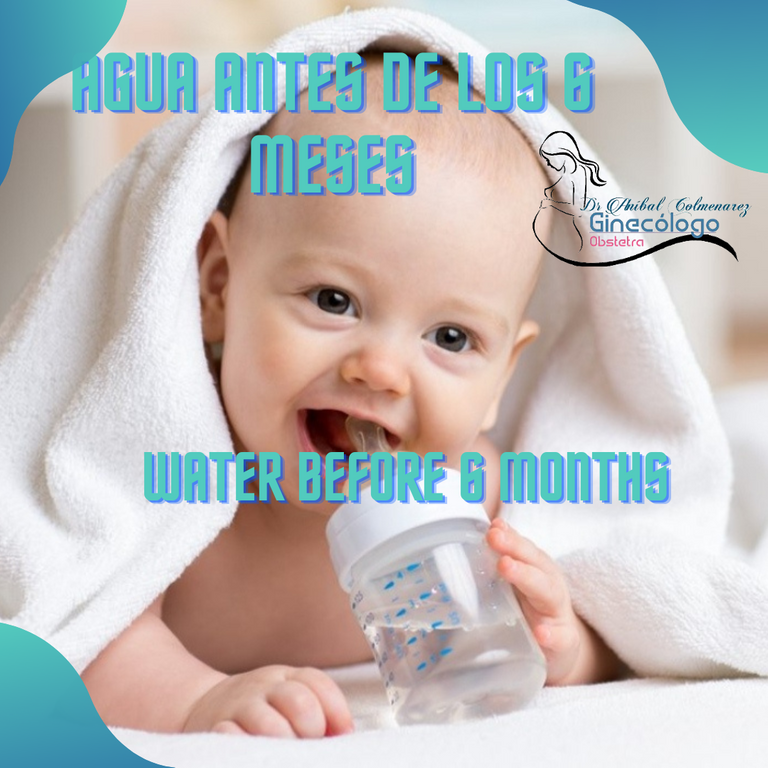
This question is frequently asked, and I understand the doubt, the answer is NO breast milk has everything your baby needs, he doesn't need anything else.
Exclusive breastfeeding is for the first 6 months and does not include anything other than breast milk.
2. My baby cries that's because he's hungry!

The truth is that not only does the baby cry because of hunger, the baby's language is crying, it is the way he communicates, if he is hot he will cry, if he is cold he will cry, if he is scared he will cry.
The baby's language is crying not only cries because of hunger
It is a mistake to think that only hunger makes the baby use his language which is crying, and this makes us desperate believing that the breast is not enough to satisfy his hunger, be very careful with this, we must see what other reasons exist that the baby wants to express through his crying.
3. The baby eats every 2 hours because it does not support him?
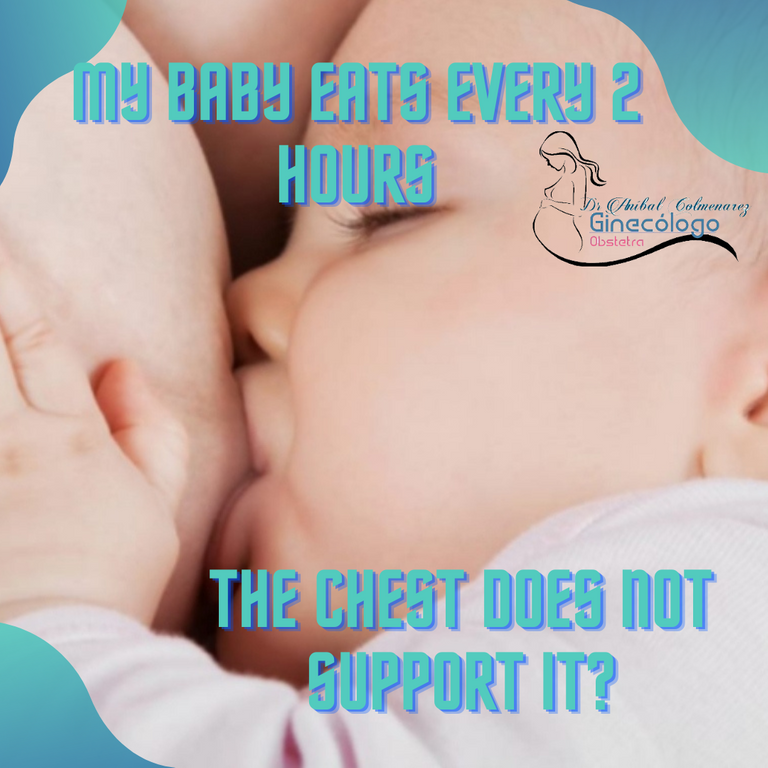
This is normal, breastfeeding is on demand, but it is estimated that every 2 to 3 hours the baby should eat, and this is because breast milk has all the essential nutrients, plus they are easier to digest so the baby as it digests faster and easier to 2 hours again asking for food.
The only way to know if a baby is breastfeeding is if he/she loses weight even though he/she is exclusively breastfeeding.
4 Should I go on a diet when breastfeeding?

This is one of the classics, it is believed that certain foods can be bad for the baby, give hiccups, vomiting and other things, the truth is that it has nothing to do with what you eat with breastfeeding, the formation of breast milk is a process totally independent of digestion, the only thing that can have some precaution are the drugs as some can be excreted through breast milk, as well as alcoholic beverages, are very exceptional cases.
But you should not diet food.
5 Why can't I give formula to my baby?
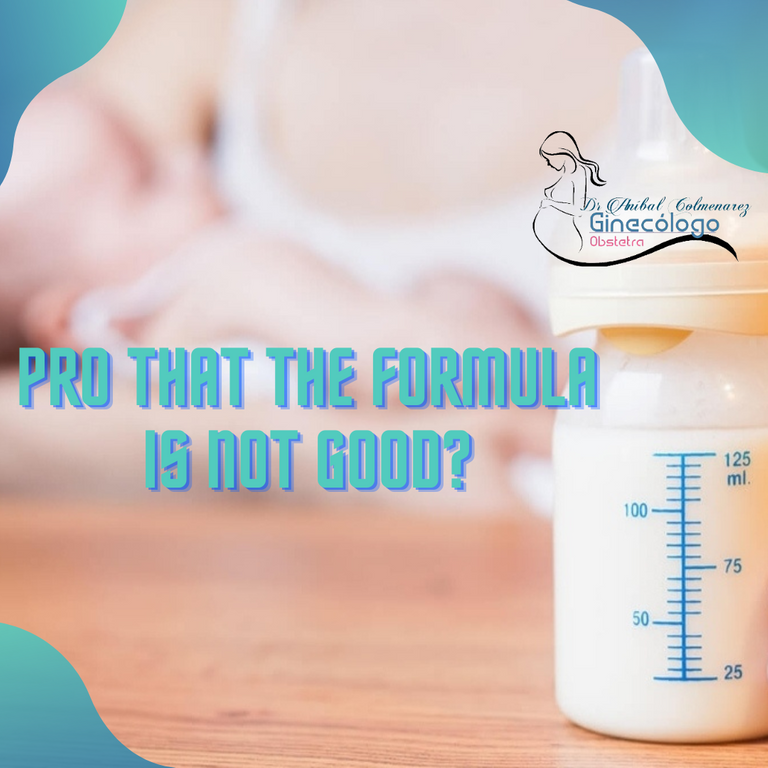
Well, I get asked this question a lot🧐 the truth is that no artificial formula can equal breastfeeding, breast milk.
But I will answer from 3 important points.
- The baby:
Breast milk has all the vitamins, minerals, proteins, defense cells, among other super important componerse for baby's development.
In addition to all this, it must be understood that the baby's digestive system is not developed to digest certain elements, breast milk is specially designed to make digestion easier for the baby, and also not to force the other digestive organs that are not yet fully developed.
Their defense system benefits, their digestive system, their essential development and their nervous system.
It is simply the best for the baby.
2.Breast.
For YOU mom offer benefits too, statistically women who breastfeed have less risk of suffering from breast cancer.
You help uterine contraction, so bleeding will decrease.
Helps you lose weight, yes, just as you read it, those extra pounds you may have had in pregnancy by a mechanism matters during breastfeeding you burn bigger and thus lose weight
It is more comfortable:
It is better to give the teat that is already ready, at the right temperature, does not need refrigeration, mixing, nothing measures, no need complicated preparations of formulas to give a teat
Helps maternal attachment: your baby enjoys breastfeeding, not only for an organic benefit but more for an affective benefit, he feels safe with you, recognizes your smell, your warmth, it is a great bond that becomes stronger when you breastfeed.
3.Economic.
Formulas are super expensive, plus they don't last at all.
So not only is it better for mom and baby, but you save money.
6. I give my baby formula and he/she doesn't ask for more food for a long time, is it good?
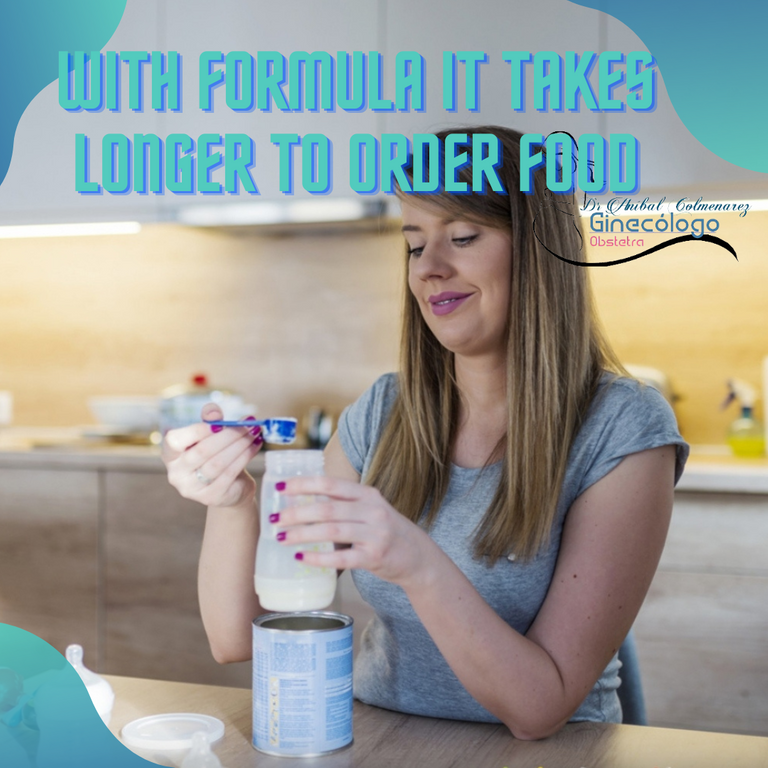
It is true that if you give formula to the baby the intervals between feedings are longer, but that does not mean it is good, it is because the digestion is slower, since it takes longer to digest the formula, and it takes longer, that is the reason why it takes longer for the baby to get hungry.
However, this is detrimental to the digestive system.
7. My breasts do not produce enough milk?

The truth is that any breast produces the necessary amount of milk, we have a wrong thought to believe that the breasts should secrete a lot of milk, the amount of breast milk is scarce, we must remember that the baby is born without ever using the stomach, so the amount of breast milk should be in small quantity, so little by little the baby's stomach is getting used to the new food, and adapting to the function of the breasts, and the baby is getting used to the new food.
It is vital that this adaptability be with breast milk.
8. How do I know if the breast does not support the baby?

All breasts support babies, and this does not depend on size. The only way to know if a baby is not being supported by breast milk is if he/she loses weight even though he/she is exclusively breastfed.
However, this is more associated to digestive problems of the baby than to the composition of the breast milk.
9. Should I take something to produce more milk?
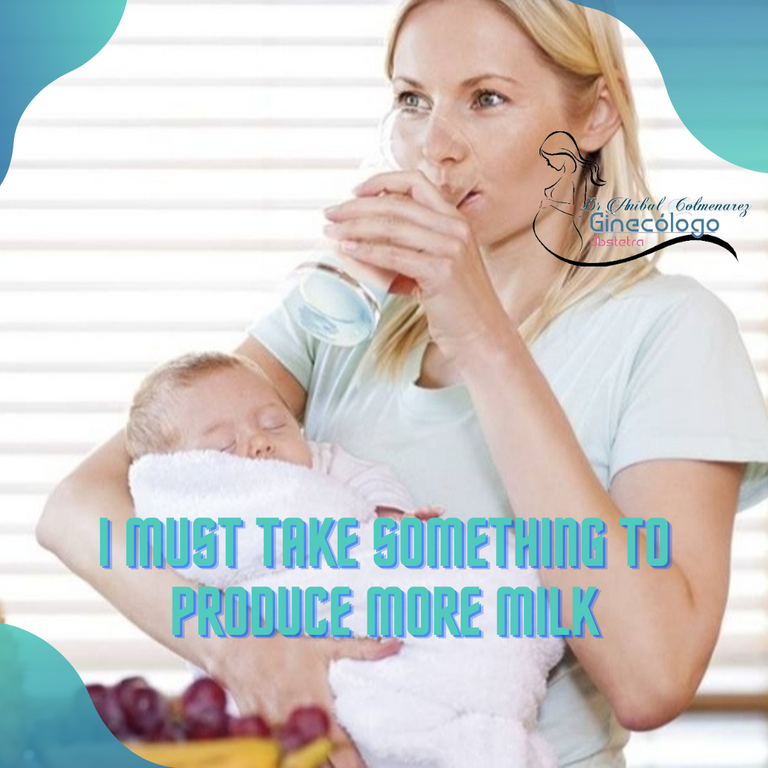
The truth is no, although it is necessary to be well hydrated, it is not necessary to produce an adequate amount of milk, the way the body produces more milk is through the baby's sucking, this process is so important that the baby decides how much milk he/she wants to drink.
The greater the sucking, the greater the amount of milk.
This is the reason why at the beginning the amount of milk is small because the baby is adapting to using his stomach for the first time, his body will ask for more nutrients as time goes by and his digestive system starts to work better.
10. How long should I breastfeed?

Exclusive breastfeeding, which does not need water or the baby only teats, is until 6 months, after that begins a process called ablactation which is the process by which foods necessary for development are added in an established order, in this process breastfeeding can be complementary up to two years.
Weaning is also a very important issue, there are techniques and strategies for the baby to leave the breast in a natural way.
If you have any doubts, always go to your doctor and clarify your doubts.
Good moms, I hope these experiences are useful to you.
If you have any questions we are here
👇🏻👇🏻👇🏻👇🏻
Write and I'll gladly respond